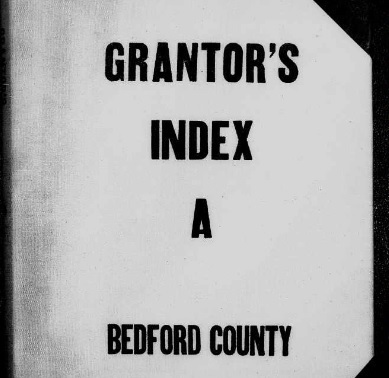 If your ancestor owned real estate, make certain you have a record for how each piece of property left his ownership.
If your ancestor owned real estate, make certain you have a record for how each piece of property left his ownership.
Was it deeded in her will, sold for back taxes, sold before his death, quitclaimed by the heirs after her death?
Each of these transactions has the potential to reveal significant information–particularly if the property was still owned by the ancestor at their demise.








10 Responses
Deed records can provide valuable information. While researching records of a certain property, from it’s original owner to the present day, I learned much about the early owners just from reading the Index to Deeds. When I began to see Mama’s name in the index to deeds, I realized that Papa had died. As time went on, the names of the children began to appear. Mama was no longer alive. Later, when the county wanted to change the road or timber was cut, or the telephone company wanted to run a line thru the property, the younger generations signed giving their addresses. This one piece of property was owned by several generations and the deed records provided names of the heirs as well as names of the spouses.
One never knows what one will find. One widow had her children deed their interest in their late father’s estate to her when they turned of age. She paid them all the same amount of cash at the time of the transaction. That way they got money from their father’s estate when they became “of age” and the title to the property was cleared as well–all without having to go to the difficulty of having a guardian appointed for the minor children.
Wow! I never knew what the reasonings were behind this piece of information. Now I know and it makes to do just that! FIND EVERY PIECE!
It is not always safe to assume that a early 19th woman did not buy property in her own name while her husband was living. There were gradual changes n women’s property rights before the major laws were passed.
Very true. Generally speaking, if I see a woman buying or selling property when it wasn’t common, I try and see what might have caused it–particularly if she is married. Sometimes it was a way to shield money from a husband’s debts.
Where do you find deeds in Saunders County, Nebraska 1870-1875? Thank you. KarenCampbellGenealogy@outlook.com
I would start with the County Recorder’s office in Saunders County.
In Wake County, NC, one distant female relative of mine received land from her father. In 1819, her husband sold the land to William Hill, Secretary of State. The court privately examined her to make sure she was not being coerced to sell the land. One month later, William Hill turned around and sold the exact same tract of land back to the husband making him the owner and for ten dollars more than it was sold to him. Sometimes this was done to keep the financial affairs in the control of the male.
In Kansas and a few other states there are indexes that list every transaction regarding a piece of land. You look up the Township, range and section. Then the quarter section. It gives you in date order the transaction and volume and page recorded. Very helpful.
Those sort of indexes (often called lot, tract, or parcel indexes) are frequently found in federal land states–where property is usually described using the township-range system. They are a great resource and often locate things not found with the grantor/grantee indexes.